- 113: INVISIBLE WALLSwith A Walker & D Disney 112: TREATwith T Dearborn 111: BABYwith S Deo & L Ferney 110: POP!with Z Frost & B Jessen 109: NO THEME 12with C Maling & N Rhook 108: DEDICATIONwith L Patterson & L Garcia-Dolnik 107: LIMINALwith B Li 106: OPENwith C Lowe & J Langdon 105: NO THEME 11with E Grills & E Stewart 104: KINwith E Shiosaki 103: AMBLEwith E Gomez and S Gory 102: GAMEwith R Green and J Maxwell 101: NO THEME 10with J Kinsella and J Leanne 100: BROWNFACE with W S Dunn 99: SINGAPOREwith J Ip and A Pang 97 & 98: PROPAGANDAwith M Breeze and S Groth 96: NO THEME IXwith M Gill and J Thayil 95: EARTHwith M Takolander 94: BAYTwith Z Hashem Beck 93: PEACHwith L Van, G Mouratidis, L Toong 92: NO THEME VIIIwith C Gaskin 91: MONSTERwith N Curnow 90: AFRICAN DIASPORAwith S Umar 89: DOMESTICwith N Harkin 88: TRANSQUEERwith S Barnes and Q Eades 87: DIFFICULTwith O Schwartz & H Isemonger 86: NO THEME VIIwith L Gorton 85: PHILIPPINESwith Mookie L and S Lua 84: SUBURBIAwith L Brown and N O'Reilly 83: MATHEMATICSwith F Hile 82: LANDwith J Stuart and J Gibian 81: NEW CARIBBEANwith V Lucien 80: NO THEME VIwith J Beveridge 57.1: EKPHRASTICwith C Atherton and P Hetherington 57: CONFESSIONwith K Glastonbury 56: EXPLODE with D Disney 55.1: DALIT / INDIGENOUSwith M Chakraborty and K MacCarter 55: FUTURE MACHINES with Bella Li 54: NO THEME V with F Wright and O Sakr 53.0: THE END with P Brown 52.0: TOIL with C Jenkins 51.1: UMAMI with L Davies and Lifted Brow 51.0: TRANSTASMAN with B Cassidy 50.0: NO THEME IV with J Tranter 49.1: A BRITISH / IRISH with M Hall and S Seita 49.0: OBSOLETE with T Ryan 48.1: CANADA with K MacCarter and S Rhodes 48.0: CONSTRAINT with C Wakeling 47.0: COLLABORATION with L Armand and H Lambert 46.1: MELBOURNE with M Farrell 46.0: NO THEME III with F Plunkett 45.0: SILENCE with J Owen 44.0: GONDWANALAND with D Motion 43.1: PUMPKIN with K MacCarter 43.0: MASQUE with A Vickery 42.0: NO THEME II with G Ryan 41.1: RATBAGGERY with D Hose 41.0: TRANSPACIFIC with J Rowe and M Nardone 40.1: INDONESIA with K MacCarter 40.0: INTERLOCUTOR with L Hart 39.1: GIBBERBIRD with S Gory 39.0: JACKPOT! with S Wagan Watson 38.0: SYDNEY with A Lorange 37.1: NEBRASKA with S Whalen 37.0: NO THEME! with A Wearne 36.0: ELECTRONICA with J Jones
Lily Mae Martin
Introduction to Tanya Thaweeskulchai’s A Salivating Monstrous Plant
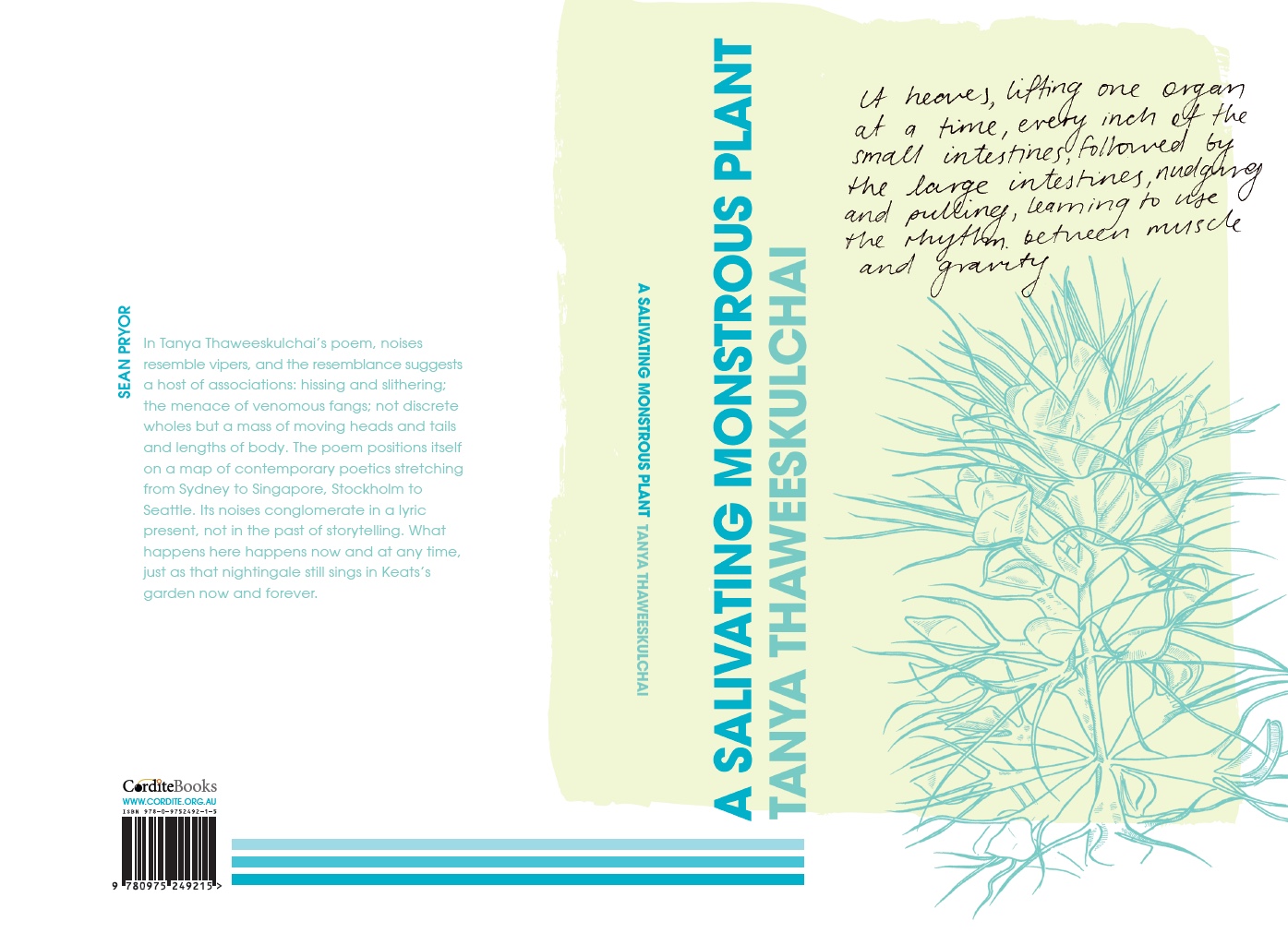 The greatest thing, writes Aristotle in the Poetics, is the command of metaphor, an eye for resemblances. The first overt metaphor in Tanya Thaweeskulchai’s A Salivating Monstrous Plant appears in its second sentence: ‘These noises conglomerate, building like a nest of waking vipers’.
The greatest thing, writes Aristotle in the Poetics, is the command of metaphor, an eye for resemblances. The first overt metaphor in Tanya Thaweeskulchai’s A Salivating Monstrous Plant appears in its second sentence: ‘These noises conglomerate, building like a nest of waking vipers’.
Posted in INTRODUCTIONS
Tagged Alissa Dinallo, Lily Mae Martin, Sean Pryor, Tanya Thaweeskulchai
Introduction to Matthew Hall’s False Fruits
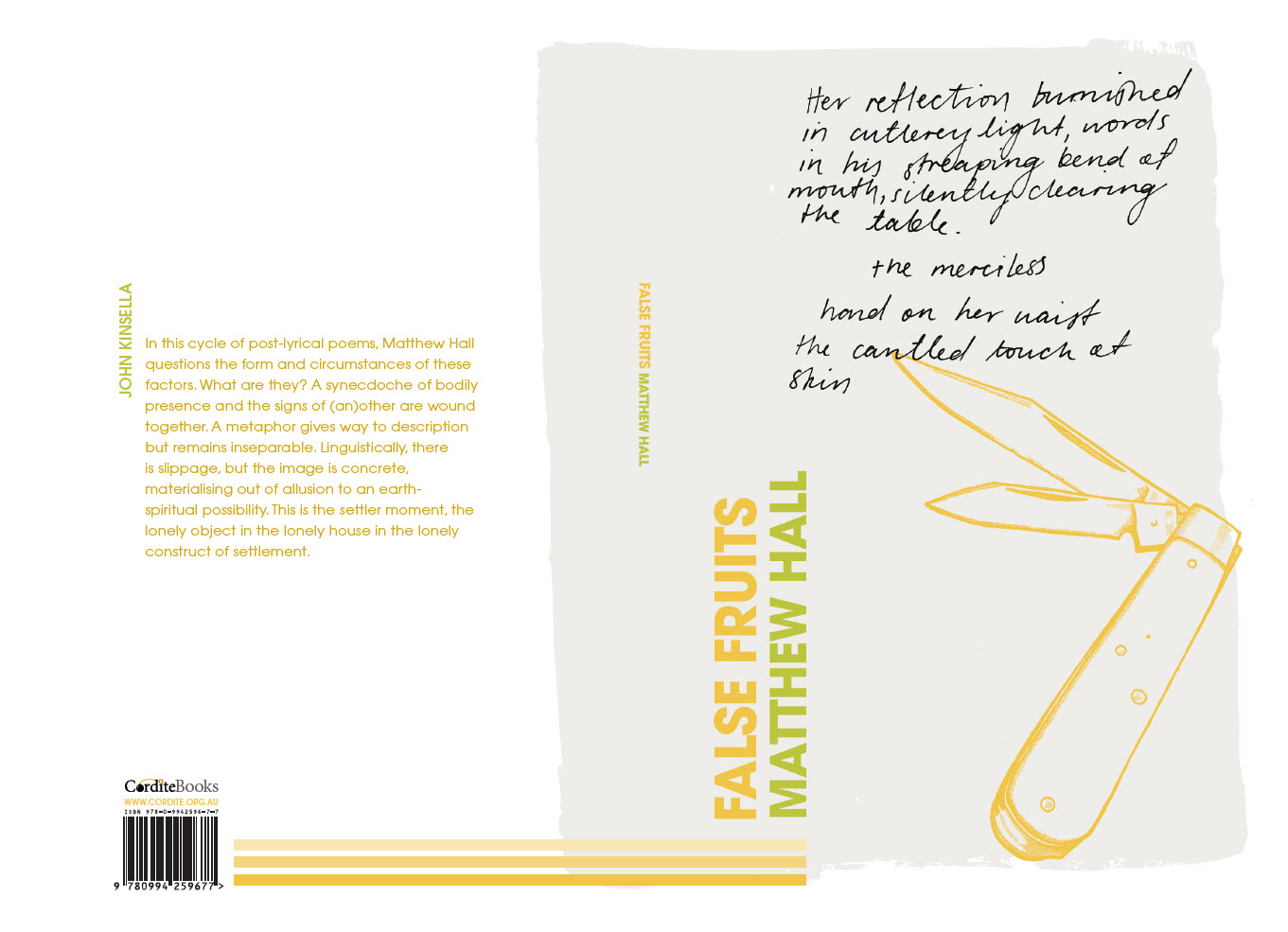 Fruit is the apogee of the pastoral. It’s what the work, the waiting, the ritual and the thanks are for. But the making of fruit is costly and even the ‘natural’ cycle of things will be managed so some factors are privileged over others. In this cycle of post-lyrical poems, Hall questions the form and circumstances of these factors. What are they?
Fruit is the apogee of the pastoral. It’s what the work, the waiting, the ritual and the thanks are for. But the making of fruit is costly and even the ‘natural’ cycle of things will be managed so some factors are privileged over others. In this cycle of post-lyrical poems, Hall questions the form and circumstances of these factors. What are they?
Posted in INTRODUCTIONS
Tagged Alissa Dinallo, John Kinsella, Lily Mae Martin, Matthew Hall
Introduction to Mez Breeze’s Attn: Solitude
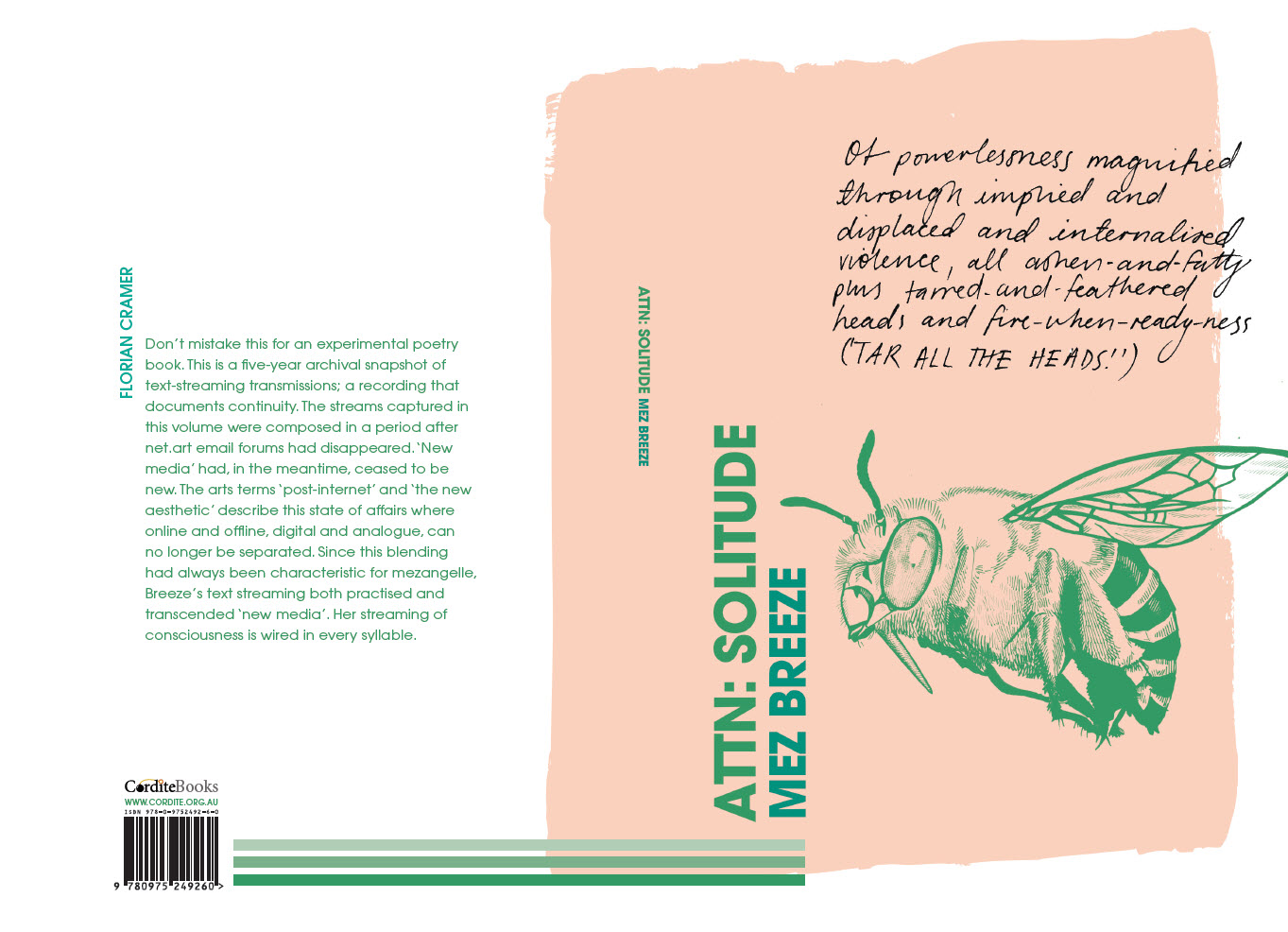 In the 1990s and early 2000s, Mez Breeze’s mezangelle language needed explication. People who were unfamiliar with internet and new media culture did not get the references. Those who were already immersed in this culture often considered it a separate realm, a cyberspace, and thus had difficulties with the blending of the digital and the physical, technology and embodiment, code and subjectivity in Mez’s writings.
In the 1990s and early 2000s, Mez Breeze’s mezangelle language needed explication. People who were unfamiliar with internet and new media culture did not get the references. Those who were already immersed in this culture often considered it a separate realm, a cyberspace, and thus had difficulties with the blending of the digital and the physical, technology and embodiment, code and subjectivity in Mez’s writings.
Posted in INTRODUCTIONS
Tagged Alissa Dinallo, Florian Cramer, Lily Mae Martin, mez breeze
Introduction to Derek Motion’s The Only White Landscape
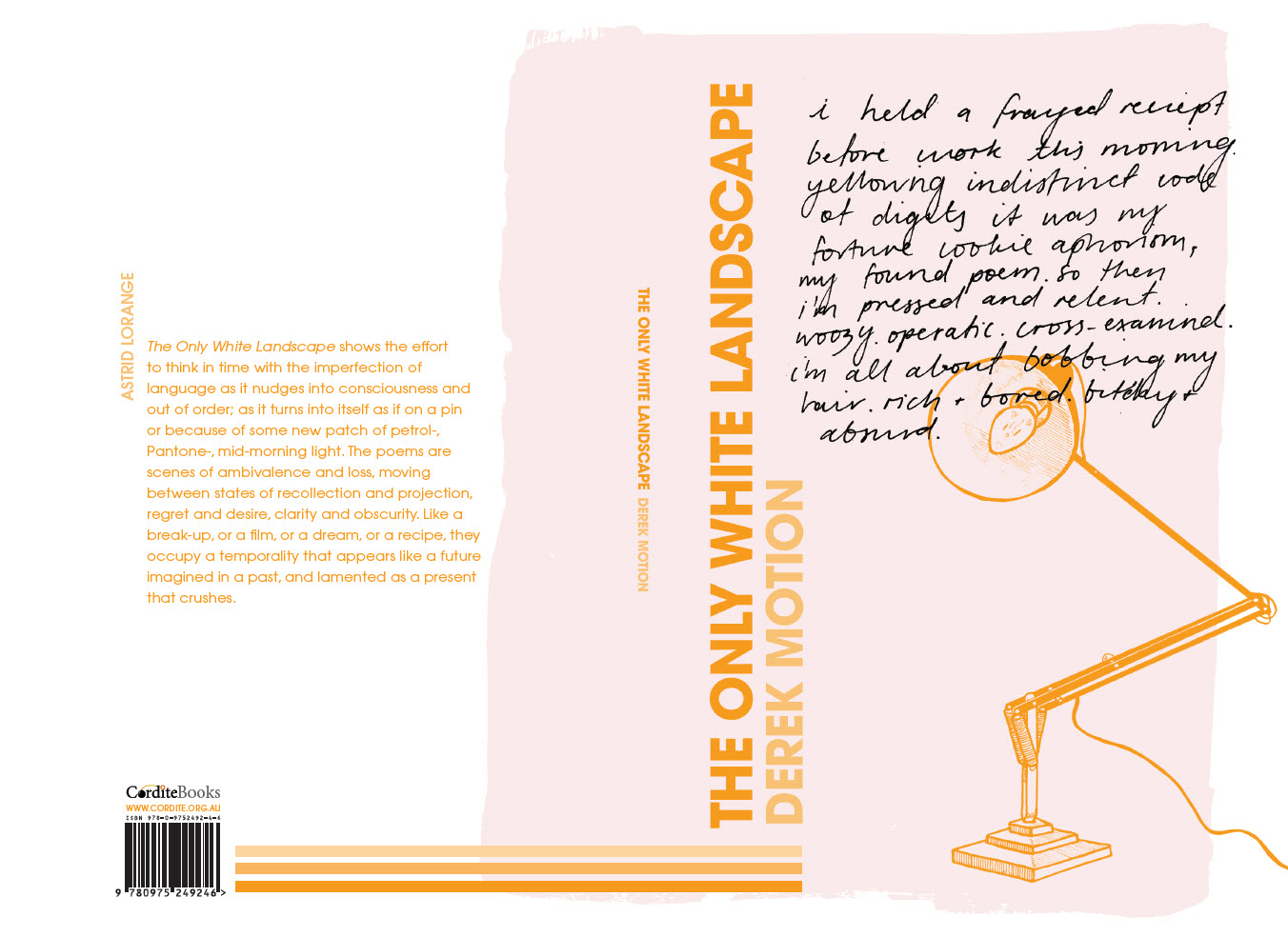 The Only White Landscape is melancholic, in this Wilsonian sense. The poems are scenes of ambivalence and loss, moving between states of recollection and projection, regret and desire, clarity and obscurity. There are preoccupations that link the poems across the collection: bodies (and the clothes they wear, the language of their presence and absence), light (and its close relationship to time), administration (and the twin labours of work and home).
The Only White Landscape is melancholic, in this Wilsonian sense. The poems are scenes of ambivalence and loss, moving between states of recollection and projection, regret and desire, clarity and obscurity. There are preoccupations that link the poems across the collection: bodies (and the clothes they wear, the language of their presence and absence), light (and its close relationship to time), administration (and the twin labours of work and home).
Posted in INTRODUCTIONS
Tagged Alissa Dinallo, Astrid Lorange, derek motion, Lily Mae Martin
Introduction to Omar Sakr’s These Wild Houses
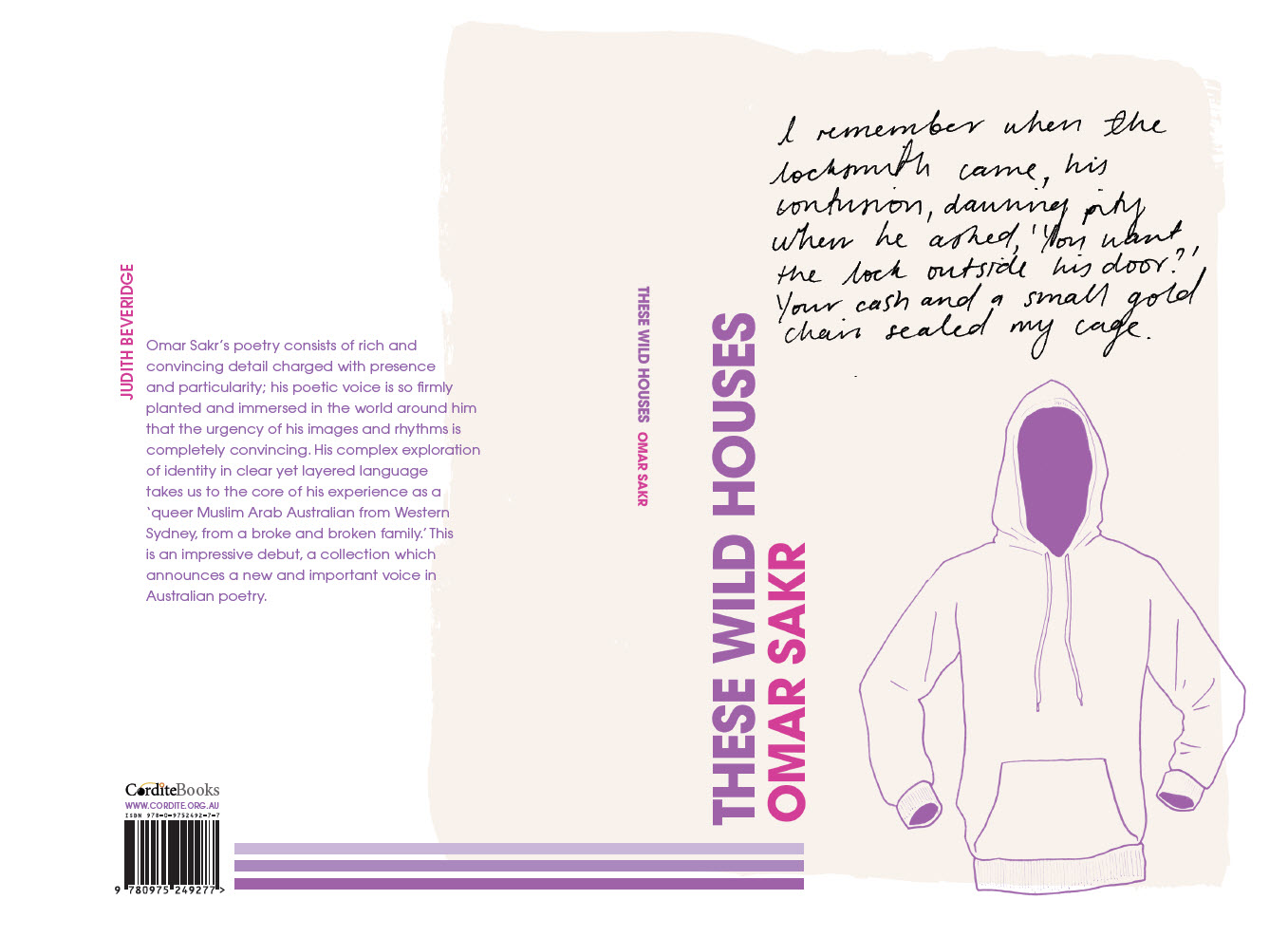 Omar Sakr’s These Wild Houses is a complex exploration of identity, an identity exposed in clear yet layered language, a language that takes us to the core of what he has experienced as a ‘queer Muslim Arab Australian from Western Sydney, from a broke and broken family.’
Omar Sakr’s These Wild Houses is a complex exploration of identity, an identity exposed in clear yet layered language, a language that takes us to the core of what he has experienced as a ‘queer Muslim Arab Australian from Western Sydney, from a broke and broken family.’
Posted in INTRODUCTIONS
Tagged Alissa Dinallo, Judith Beveridge, Lily Mae Martin, Omar Sakr
Introduction to Kris Hemensley’s Your Scratch Entourage
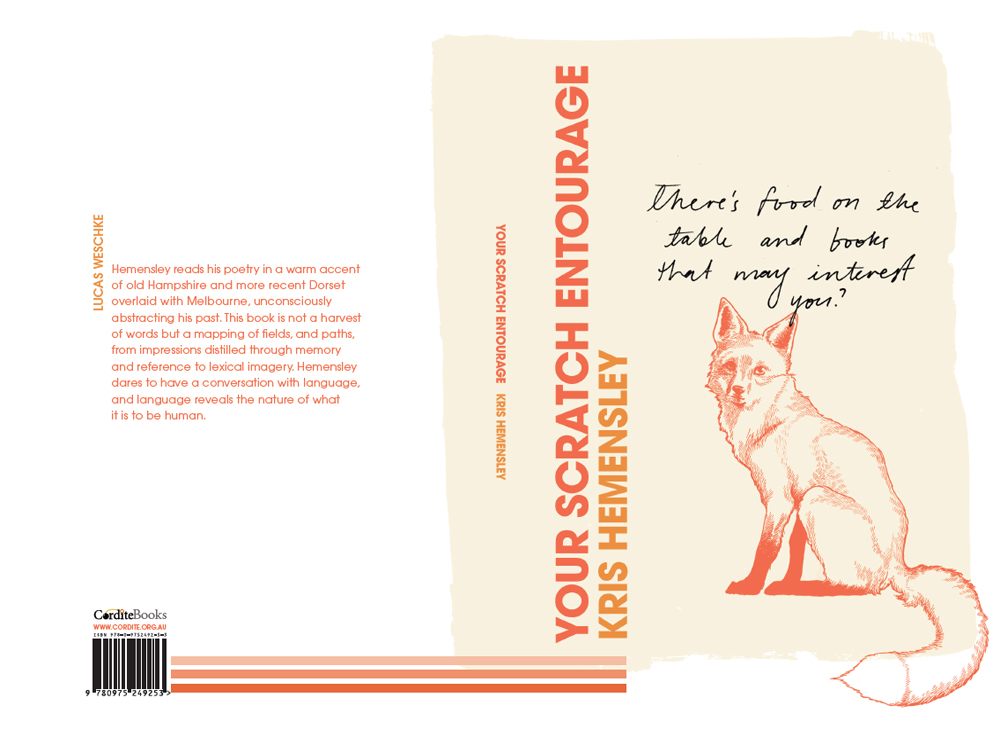 How can one write words about a poet? Last year, Kris Hemensley and I considered Émile Chartier (Alain)’s assertion that ‘men are afraid to complete their thoughts’, on our way to visit Greta Berlin, whom I had first met in Zennor as a small child and whose father, Sven Berlin, had enthralled a young Kris Hemensley in 1963 with the accoutrements of the artist and his first taste of red wine. And down by the harbour in Weymouth, we had already discovered a shared admiration for W S Graham. A framework was emerging.
How can one write words about a poet? Last year, Kris Hemensley and I considered Émile Chartier (Alain)’s assertion that ‘men are afraid to complete their thoughts’, on our way to visit Greta Berlin, whom I had first met in Zennor as a small child and whose father, Sven Berlin, had enthralled a young Kris Hemensley in 1963 with the accoutrements of the artist and his first taste of red wine. And down by the harbour in Weymouth, we had already discovered a shared admiration for W S Graham. A framework was emerging.
Posted in INTRODUCTIONS
Tagged Alissa Dinallo, Kris Hemensley, Lily Mae Martin, Lucas Weschke
Introduction to Chris Mann’s Whistlin Is Did
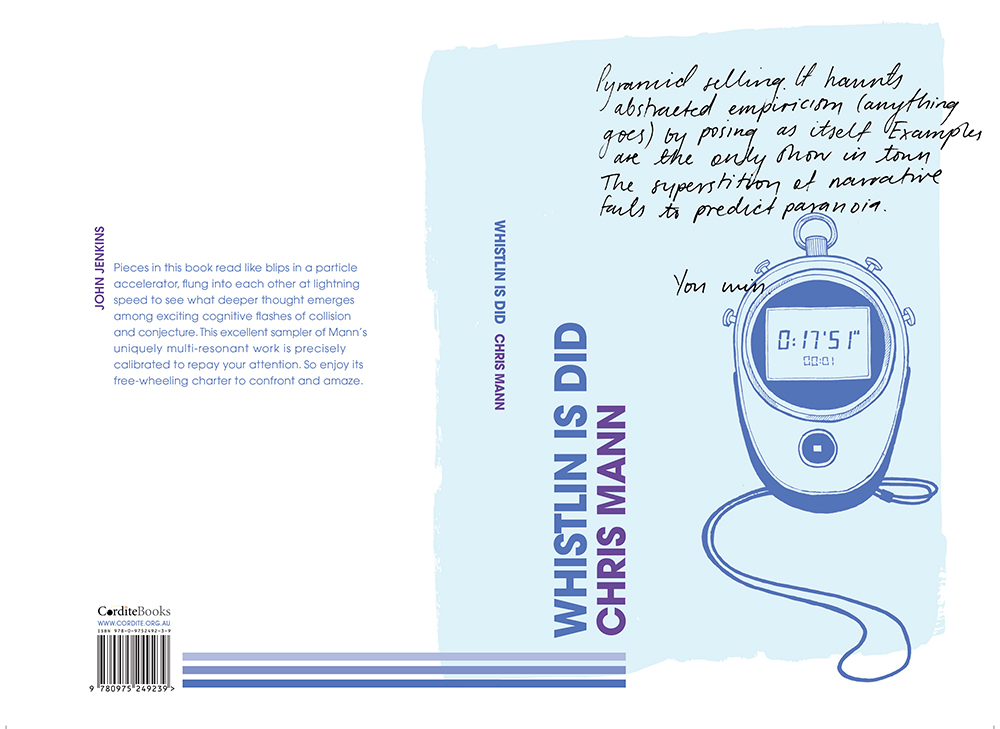 Chris Mann read at Melbourne’s La Mama in the early 1970s, where he first impressed me as a bold exponent of a sort of critical, larrikin and compositional linguistics, and seemed very much at home in the theatre’s performance space, with its nascent egalitarian ethos. Some listeners I noticed may have been equally perplexed as intrigued by his well-timed delivery, his knowingly artful shtick and highly patterned patter.
Chris Mann read at Melbourne’s La Mama in the early 1970s, where he first impressed me as a bold exponent of a sort of critical, larrikin and compositional linguistics, and seemed very much at home in the theatre’s performance space, with its nascent egalitarian ethos. Some listeners I noticed may have been equally perplexed as intrigued by his well-timed delivery, his knowingly artful shtick and highly patterned patter.
Posted in INTRODUCTIONS
Tagged Alissa Dinallo, Chris Mann, John Jenkins, Lily Mae Martin
4 Artworks by Lily Mae Martin
The details of our bodies are unique. I’m drawn to studying the human figure through art where I am allowed to see what people actually look like. In a world plastered with images of an uncontainable, fleeting notion of beauty, I try and amend this within my own world by making paintings and drawings of myself and those around.
Posted in ARTWORKS
Tagged Lily Mae Martin
Submission to Cordite 43: MASQUE is now open!
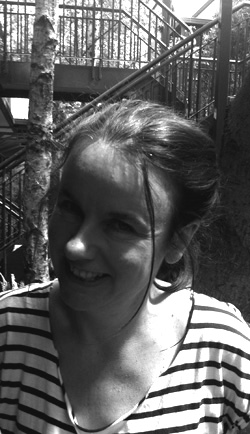 This issue is the Masque. It extends an invite to displays of Devices and Mythic Mayhem. It desires to entertain Bold Interiors of Poetic Fancy and Brocaded Rewindings, Lyricised run-ons and flirtatious Kinks in the Narrative. A toying with Masks and Anti-Masks of identity, gender guises and human conceit.
This issue is the Masque. It extends an invite to displays of Devices and Mythic Mayhem. It desires to entertain Bold Interiors of Poetic Fancy and Brocaded Rewindings, Lyricised run-ons and flirtatious Kinks in the Narrative. A toying with Masks and Anti-Masks of identity, gender guises and human conceit.
Posted in GUNCOTTON
Tagged ann vickery, Jeremy Balius, Lily Mae Martin













